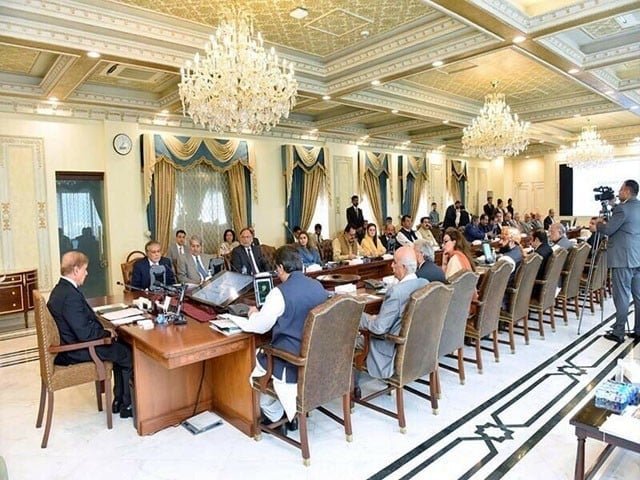The federal cabinet is preparing to discuss the highly anticipated draft for the 26th Constitutional Amendment in today’s meeting, following endorsements from both government and opposition groups. Although the gathering was set for early this morning, it has encountered several delays as political leaders continue consultations regarding the proposed reforms, despite reaching a consensus the previous night.
After navigating through various political challenges, members from both sides have “unanimously approved” the draft amendment. This approval came during a session of a special committee led by Syed Khursheed Shah from the Pakistan Peoples Party (PPP).
All major political parties were present at the meeting, with the exception of Awami National Party’s Aimal Wali Khan. The proposed changes include the establishment of a constitutional bench, a parliamentary role in selecting the Chief Justice from a list of three judges, restructuring judicial councils, and limiting the Chief Justice’s tenure to three years.
If the cabinet gives the green light, the draft will move to the Senate for consideration. Both houses of parliament are scheduled to meet later today, with the Senate convening at 6:30 PM and the National Assembly at 7 PM.
Syed Khursheed Shah noted that even the key opposition party, Pakistan Tehreek-e-Insaf (PTI), has expressed agreement on the draft. However, PTI Chairman Barrister Gohar Ali Khan stated that discussions surrounding the latest draft are ongoing, and they will finalize their stance after consulting their party founder, who is currently imprisoned.
PPP Chairman Bilawal Bhutto-Zardari has warned that if opposition parties do not support the amendment, he may seek passage with the backing of the Pakistan Muslim League-Nawaz and some additional members.
In response, Jamiat Ulema-e-Islam-Fazl (JUI-F) opposed any coercive tactics from the government, asserting that they would not support the changes under such circumstances.
To pass the amendments, the government requires a two-thirds majority in parliament and is reportedly short of 13 votes in the National Assembly and nine in the Senate. Last month’s attempts to table similar amendments in parliament failed due to opposition withdrawal.
The draft includes several key amendments: the creation of constitutional benches, a revised process for appointing the Chief Justice, and changes to the Judicial Commission. Additional proposals involve annual performance evaluations for judges and adjustments to the Supreme Judicial Council’s structure.
The discussions continue to unfold amid various political dynamics as leaders approach the critical phase of constitutional reform.
















